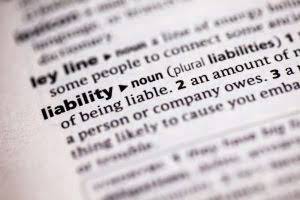Basic Accounting Tips for Churches and Nonprofits

For example,you might have authorization lists about who can access which areas ofthe building, types of information, etc. You add your increases andtake away your church accounting procedures expenses…all the while keeping a running daily balance. Essentially the organization makes two lists, one of incomereceived and one of expenses incurred.
The Beginner’s Guide to Accounting for Churches (with FAQs)
Then, at tax time, ministers will still have to pay 15.3% of their gross income for SECA. Always ensure that your church meets the requirements for maintaining its tax-exempt status. Familiarize yourself with federal guidelines and any local regulations that apply. Regularly review your church activities and financial practices to ensure they align with compliance regulations.
The #1 Accounting Software For Churches
A key difference between accounting for for-profit versus churches is the concept of fund accounting. Fund accounting stems from the key difference between churches and businesses. For-profit entities have a general ledger (or a single self-balancing account), and churches have multiple general ledgers. These general ledgers go by “funds.” Funds let organizations separate resources into different accounts to identify the uses of those resources as well as where they came from.
Double Entry Bookkeeping:
An accountant will help inform your church’s board of all financial changes and requirements. Aplos will send you a weekly cash management summary and monthly financial statements to guide your financial health. Aplos includes everything you need in one place to manage your church finances and relationships, prepare your reports, accept donations, track your people, and achieve your mission.

They work together with the church’s leadership to develop and evaluate budgets, ensuring that funds are distributed wisely to support the ministry and mission of the church. Recommendations for improvements are made based on an assessment of the goals, expenses, and income when necessary. Churches exchange yearly reports, budgetary details, and frequent financial updates with their members via email, websites, or mobile apps. Members of the congregation are more engaged and build trust due to such transparency since they have access to how their contributions support the church’s mission and ministries.
- Church financial management is an integral part of church management, essential to maintaining the congregation’s and the church’s temporal and spiritual well-being.
- Internal auditors concentrate on enhancing internal procedures and management risk, while external auditors, who are separate from the business, provide an objective review.
- A very important internal control procedure is…conducting an annual financial audit.
- The skill set of an accountant, on the other hand, is often larger and includes financial analysis, tax planning, auditing, and the capacity to create more intricate financial reports.
- It provides a snapshot of your financial performance, showing whether your church is operating at a surplus or deficit during that time.
- Remember, effective church accounting supports your church’s mission and provides peace of mind, allowing you to focus on what truly matters—serving your congregation and community.
What are church accounting best practices for payables and reimbursements?
It illustrates the connection between the assets bought with that cash and the financing sources (liabilities and equity). One account is debited to increase it, while another is credited to decrease it. The balance between the debits and credits ensures that the sum of the debits equals the sum of the credits.
These numerous examples demonstrate the need for accounting in financial reporting, compliance, decision-making, and operational effectiveness. It improves financial reporting’s accuracy, finds inconsistencies or inaccuracies, and deters fraud. Internal controls are strengthened by auditing, which helps businesses run more effectively. Cost accounting helps firms find areas where expenses are cut without sacrificing quality by giving them thorough insights into costs. It aids in strategic decision-making, performance assessment, and resource allocation decisions.

Having a variety of revenue streams makes your church more financially stable. If one source falls through or some of your expenses are higher than expected, it’s easier to recover when you don’t have all of your funding eggs in one basket. And, if everything goes to plan, you can use your additional revenue to create an emergency fund or save for long-term church growth.
Learn Accounting for Churches and Nonprofits:
See tips on setting up the best accounting system for your organization… Accounting is define as a system of recording and summarizing financial (business) transactions in such a way that they can later be analyzed or used to communicate with others. Moral behavior affects all parts of church finance, requiring constant integrity, honesty and responsibility. Encouraging a value-based culture leads to sensible choices, shields the church’s image and gains community trust.
